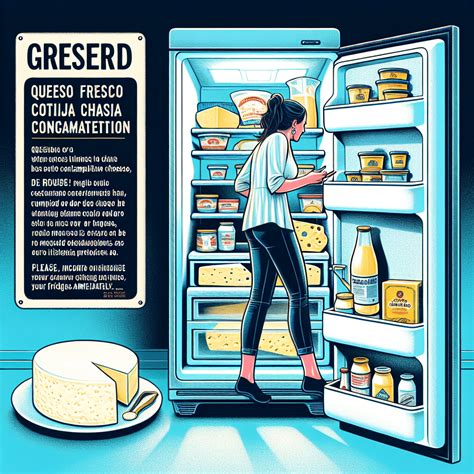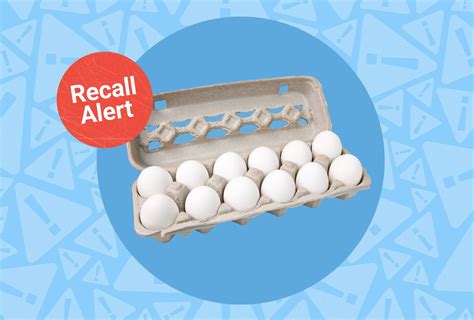
A major grocery chain, Kroger, has initiated a voluntary recall of a specific frozen berry product due to potential Hepatitis A contamination. The recall, announced this week, impacts multiple states and urges consumers to immediately check their freezers for affected items.
Kroger is recalling Private Selection Frozen Triple Berry Medley, sold in various Kroger-owned stores across the United States, due to concerns over possible Hepatitis A contamination. The company is urging customers who have purchased this product to dispose of it immediately or return it to the store for a full refund.
The recalled product is the Private Selection Frozen Triple Berry Medley, packaged in a 16-ounce (1 lb) bag. The recalled product has the “best if used by” dates of July 07, 2024, and July 08, 2024, and the UPC code 0001111079120.
“Kroger is committed to providing safe, high-quality products and following the highest safety standards,” the company stated in its official recall announcement. The company initiated the recall after being notified by the U.S. Food and Drug Administration (FDA) of the potential contamination.
The potentially contaminated berries were distributed to Kroger family of stores, including Kroger, Baker’s, Dillons, Gerbes, Jay C Food Stores, Food 4 Less, Foods Co, Fred Meyer, Fry’s, King Soopers, Mariano’s, Metro Market, Pay-Less Super Markets, Pick’n Save, QFC, Ralphs, and Smith’s. These stores are located across a wide geographic area, including states in the Midwest, South, and West.
Hepatitis A is a contagious liver disease caused by the Hepatitis A virus. It can range in severity from a mild illness lasting a few weeks to a severe illness lasting several months. Symptoms typically appear between 15 and 50 days after exposure and can include fever, headache, fatigue, loss of appetite, nausea, vomiting, diarrhea, abdominal pain, jaundice (yellowing of the skin and eyes), dark urine, and pale stool.
In some cases, particularly in individuals with pre-existing liver conditions or weakened immune systems, Hepatitis A can lead to liver failure and even death. Vaccination can prevent Hepatitis A, and post-exposure prophylaxis (PEP) with either Hepatitis A vaccine or immune globulin can be effective in preventing infection if administered within two weeks of exposure.
The FDA and Kroger are advising consumers who have eaten the recalled berries to consult with their healthcare providers, especially if they experience any symptoms of Hepatitis A. Vaccination is recommended for those who are unvaccinated and have consumed the recalled product within the past two weeks.
Kroger is actively working with the FDA and other public health authorities to investigate the source of the contamination and to ensure that all affected products are removed from store shelves. The company is also implementing enhanced safety protocols to prevent future incidents.
Consumers with questions or concerns about the recall can contact Kroger at 1-800-KROGERS (1-800-576-4377). Kroger has also established a dedicated website with information about the recall: www.kroger.com/recall.
The recall highlights the importance of food safety and the potential risks associated with consuming contaminated produce. Consumers are encouraged to stay informed about food recalls and to take necessary precautions to protect their health. Proper food handling practices, such as washing fruits and vegetables thoroughly, can also help reduce the risk of foodborne illness.
This incident serves as a reminder of the complex and interconnected nature of the food supply chain and the challenges involved in ensuring food safety. The FDA and other regulatory agencies play a crucial role in monitoring food production and distribution, but ultimately, it is the responsibility of food producers and retailers to ensure that their products are safe for consumption.
The current recall is not the first instance of food contamination in recent years. Numerous recalls have been issued for various products, ranging from produce to processed foods, due to concerns over pathogens such as E. coli, Salmonella, and Listeria. These incidents underscore the need for continuous improvement in food safety practices and regulations.
Kroger’s response to the potential Hepatitis A contamination has been swift and decisive. The company has taken immediate action to remove the affected product from store shelves and to notify consumers of the recall. Kroger is also cooperating fully with the FDA in its investigation.
The financial impact of the recall on Kroger is difficult to assess at this time. The company will likely incur costs associated with removing the affected product from stores, notifying consumers, and investigating the source of the contamination. However, the long-term impact on Kroger’s reputation and brand image will depend on the company’s ability to effectively manage the recall and to prevent future incidents.
The incident also raises broader questions about the safety of imported produce. The berries in question were sourced from multiple suppliers, including some located outside the United States. This highlights the challenges involved in ensuring the safety of food products that are imported from different countries with varying food safety standards.
The FDA has increased its efforts to monitor imported food products and to work with foreign governments to improve food safety practices. However, more needs to be done to strengthen the oversight of imported food and to ensure that it meets the same safety standards as food produced in the United States.
The Hepatitis A outbreak linked to frozen berries also serves as a reminder of the importance of vaccination. Hepatitis A is a vaccine-preventable disease, and vaccination is recommended for individuals at increased risk of infection, including travelers to areas where Hepatitis A is common, people who use drugs, and people with chronic liver disease.
The Centers for Disease Control and Prevention (CDC) recommends Hepatitis A vaccination for all children at age 1 year and for adults at risk. Vaccination is a safe and effective way to protect against Hepatitis A and to prevent outbreaks of the disease.
The Kroger recall is a significant event that has the potential to impact a large number of consumers. It is essential that consumers take the necessary precautions to protect their health, including checking their freezers for the recalled product, consulting with their healthcare providers if they experience any symptoms of Hepatitis A, and getting vaccinated if they are at risk.
Kroger is committed to providing safe, high-quality products and is taking all necessary steps to address the potential Hepatitis A contamination. The company is working closely with the FDA and other public health authorities to investigate the source of the contamination and to prevent future incidents.
This recall underscores the importance of food safety and the need for continuous improvement in food safety practices. Consumers should stay informed about food recalls and take necessary precautions to protect their health.
Expanded Context and Analysis
The Kroger recall of Private Selection Frozen Triple Berry Medley due to potential Hepatitis A contamination is a significant event that underscores the complexities and vulnerabilities of the modern food supply chain. This incident not only poses an immediate health risk to consumers but also raises broader questions about food safety regulations, sourcing practices, and the role of both retailers and regulatory agencies in ensuring the safety of the food we consume.
The Hepatitis A Threat
Hepatitis A is a highly contagious liver infection caused by the Hepatitis A virus. The virus is typically spread through the fecal-oral route, meaning it can be transmitted through contaminated food or water, or through close contact with an infected person. Symptoms of Hepatitis A can include fever, fatigue, loss of appetite, nausea, vomiting, abdominal pain, jaundice, dark urine, and pale stools. While most people recover fully from Hepatitis A, the infection can be severe and, in rare cases, can lead to liver failure and death, particularly among individuals with pre-existing liver conditions.
The incubation period for Hepatitis A is typically between 15 and 50 days, meaning that people who have been exposed to the virus may not develop symptoms for several weeks. This long incubation period can make it difficult to trace the source of an outbreak and can lead to further spread of the virus before the problem is identified.
Hepatitis A is preventable through vaccination. The Hepatitis A vaccine is safe and effective and is recommended for all children at age 1 year and for adults at increased risk of infection. These high-risk groups include travelers to areas where Hepatitis A is common, people who use drugs, people with chronic liver disease, and men who have sex with men.
The Role of Kroger and Retailers
Kroger, as one of the largest grocery retailers in the United States, has a significant responsibility to ensure the safety of the products it sells. This responsibility extends beyond simply complying with food safety regulations. Kroger must also have robust systems in place to monitor its supply chain, identify potential hazards, and take swift action to address any problems that arise.
In this case, Kroger acted quickly to initiate a voluntary recall of the Private Selection Frozen Triple Berry Medley after being notified by the FDA of the potential contamination. The company also took steps to notify consumers of the recall and to provide information about the risks of Hepatitis A.
However, the fact that the contamination occurred in the first place raises questions about Kroger’s sourcing practices and its ability to effectively monitor its supply chain. Kroger sources its products from a variety of suppliers, including some located outside the United States. This complex supply chain makes it more challenging to ensure that all products meet the company’s safety standards.
Kroger and other retailers can take several steps to improve their food safety practices, including:
- Strengthening supplier relationships: Building strong relationships with suppliers and conducting regular audits of their facilities can help ensure that they are meeting the retailer’s safety standards.
- Implementing robust testing programs: Regularly testing products for pathogens and other contaminants can help identify potential problems before they reach consumers.
- Improving traceability: Implementing systems that allow retailers to trace products back to their source can help quickly identify the source of contamination in the event of an outbreak.
- Providing employee training: Ensuring that employees are properly trained in food safety practices can help prevent contamination from occurring in the store.
- Communicating effectively with consumers: Providing consumers with clear and accurate information about food safety risks can help them make informed decisions about the products they purchase.
The Role of the FDA and Regulatory Agencies
The U.S. Food and Drug Administration (FDA) is responsible for regulating the safety of most food products sold in the United States. The FDA sets food safety standards, conducts inspections of food processing facilities, and takes action to remove unsafe products from the market.
The FDA plays a crucial role in preventing foodborne illness outbreaks and in protecting the public health. However, the agency faces several challenges in carrying out its mission. One challenge is the increasing complexity of the food supply chain. As food products are sourced from more and more countries, it becomes more difficult for the FDA to monitor and regulate the safety of these products.
Another challenge is the limited resources available to the FDA. The agency has a large number of responsibilities but a relatively small budget. This can make it difficult for the FDA to conduct all of the inspections and testing that it would like to.
The FDA has taken several steps to improve its food safety efforts, including:
- Implementing the Food Safety Modernization Act (FSMA): FSMA is a landmark law that gives the FDA new authority to prevent foodborne illness outbreaks. The law requires food companies to implement preventive controls to reduce the risk of contamination.
- Increasing inspections of foreign food facilities: The FDA has increased its inspections of foreign food facilities to ensure that they are meeting U.S. safety standards.
- Improving its ability to trace food products: The FDA is working to improve its ability to trace food products back to their source in the event of an outbreak.
- Collaborating with other countries: The FDA is collaborating with other countries to improve food safety standards around the world.
The Importance of Consumer Awareness
Consumers also have a role to play in ensuring food safety. Consumers can take several steps to protect themselves from foodborne illness, including:
- Washing their hands thoroughly: Washing hands with soap and water for at least 20 seconds before and after handling food can help prevent the spread of germs.
- Cooking food to the proper temperature: Cooking food to the proper temperature can kill harmful bacteria. Use a food thermometer to ensure that food is cooked to the correct temperature.
- Storing food properly: Storing food at the proper temperature can prevent bacteria from growing. Refrigerate perishable foods promptly and do not leave them at room temperature for more than two hours.
- Washing fruits and vegetables: Washing fruits and vegetables thoroughly under running water can remove dirt and germs.
- Staying informed about food recalls: Consumers should stay informed about food recalls and take action to dispose of or return recalled products.
- Getting vaccinated: Getting vaccinated against Hepatitis A can protect against infection.
The Kroger recall of Private Selection Frozen Triple Berry Medley is a reminder that food safety is a shared responsibility. Retailers, regulatory agencies, and consumers all have a role to play in ensuring that the food we eat is safe. By working together, we can reduce the risk of foodborne illness outbreaks and protect the public health. The incident highlights the ongoing need for vigilance, investment in food safety infrastructure, and a commitment to continuous improvement in food safety practices across the entire food supply chain. Consumers are encouraged to remain proactive in staying informed and taking necessary precautions to protect their health. Frequently Asked Questions (FAQs)
1. What specific product is being recalled by Kroger, and why?
The specific product being recalled is the Private Selection Frozen Triple Berry Medley, sold in 16-ounce (1 lb) bags. The recall is due to potential contamination with Hepatitis A, a virus that can cause liver disease.
2. How can I identify if I have the recalled product in my freezer?
Check the packaging for the following information:
- Product Name: Private Selection Frozen Triple Berry Medley
- Package Size: 16-ounce (1 lb) bag
- “Best if used by” Dates: July 07, 2024, and July 08, 2024
- UPC Code: 0001111079120
If your product matches this description, it is part of the recall.
3. What should I do if I have purchased the recalled Private Selection Frozen Triple Berry Medley?
The official recommendation is to immediately dispose of the product or return it to the store where it was purchased for a full refund. Do not consume the product. After discarding it, wash your hands thoroughly with soap and water.
4. What are the symptoms of Hepatitis A, and what should I do if I think I might be infected?
Symptoms of Hepatitis A can include fever, headache, fatigue, loss of appetite, nausea, vomiting, diarrhea, abdominal pain, jaundice (yellowing of the skin and eyes), dark urine, and pale stool. Symptoms typically appear between 15 and 50 days after exposure.
If you have consumed the recalled berries and are experiencing any of these symptoms, consult with your healthcare provider immediately. They can assess your condition and determine if further testing or treatment is necessary. If you are unvaccinated, vaccination is recommended if you consumed the product within the last two weeks.
5. Which Kroger store locations are affected by this recall?
The potentially contaminated berries were distributed to Kroger family of stores, including:
- Kroger
- Baker’s
- Dillons
- Gerbes
- Jay C Food Stores
- Food 4 Less
- Foods Co
- Fred Meyer
- Fry’s
- King Soopers
- Mariano’s
- Metro Market
- Pay-Less Super Markets
- Pick’n Save
- QFC
- Ralphs
- Smith’s
These stores are located across a wide geographic area, including states in the Midwest, South, and West. Check the Kroger website (www.kroger.com/recall) for a detailed list of affected locations.









